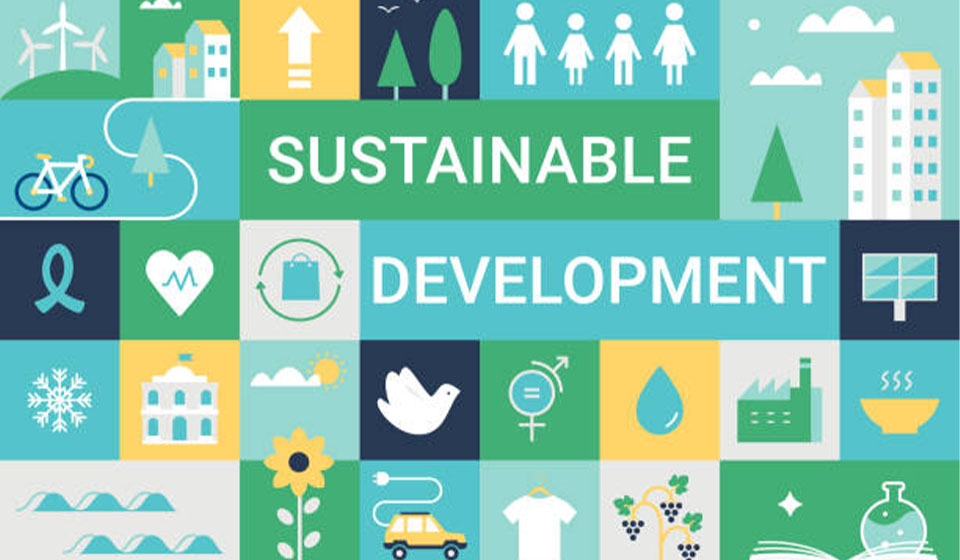
OR
Opinion
Seven key lessons the development sector learnt in 2021
Published On: December 25, 2021 07:00 AM NPT By: Sudarshan Neupane


Sudarshan Neupane
Sudarshan Neupane is an Australian Awards Alumni from Nepal, currently associated with Terre des hommes Foundation in Bangladesh. Views are personal.sudarshan.neupane@hotmail.com
It is safer to say that 2021 has given quite a lot of optimism to the development sector with increased funding from the institutional, private, and public donors for impeccable interventions.
The year 2021 has been absurd and difficult in so many ways for us as humans and as development workers. The COVID-19 pandemic continued to have a toll on the lives of hundreds of thousands of people, devastated the health systems, disrupted education and other services, and lopsided economies of most countries around the globe. This became a grave concern for all actors working in the development sector. The pandemic negatively impacted the lives of not only the vulnerable population but also our key donors, supporters, and contributors. And the sector experienced the biggest blow with massive fund cuts, even to the projects directed to provide humanitarian services. Some of the projects I was managing, or I was part of previously, got severely hit and that blew us off on both personal and professional strands. We were forced to make the most difficult decisions that included termination of valued members of the teams and partners, a significant reduction in the delivery of services, and disruption in other essential support targeted to the most vulnerable families. Despite all odds, there are also wonderful things that happened this year, some big and small, and remarkable factors contributing to making our world better, and we must acknowledge that. As 2021 is coming to an end, I am contemplating on valuable learning happening in the development sector, and came up with seven points as follows:
1. Individuals and organizations are demonstrating exceptional resilience: With multiple episodes of COVID-19 outbreaks, and a fragile socio-economic structure, several people lost their main source of livelihoods, businesses, and jobs and this made a lot of people very vulnerable. However, I was astounded to have met so many individuals and organizations who made a significant contribution to helping needy people and channeled the turbulent conditions to become even more resilient and strong in 2021.
2. More organizations are embracing mental health and psycho-social support: there is no need to highlight how important it is to consider mental health in everything that we do. Many corporates, NGOs, and government services comprehended that need and started providing psycho-social support to their employees, partners, and extended psychological aid to the beneficiaries as well. A big shout out to the donors and all organizations who recognized the need to spend more money on this very important matter when people are dealing with post-COVID recovery, an economic crisis, and climate vulnerability.
3. Centrality of data and evidence is established for making appropriate decisions: our standard conventional programmatic interventions have mostly been archaic and centered around a top-down structure that didn’t always reflect logic and wisdom. Fortunately, 2021 has been a game-changer with the success of COVID vaccination efforts and the amplification of several strategies that organizations adopted to deal with the distressing situation. More and more development projects have started allocating resources to generate authentic data and information. This culture will hugely benefit the development sector if we continue in a similar fashion.
4. Development organizations are more open to embracing ambiguity and becoming more agile: continuing with the learning to work virtually that pushed us to adjust most of the programmatic approaches, more and more organizations have accustomed to adapting quickly to the situation and respond swiftly. There is no longer a fuss over a staff calling out sick or setting up a call to explore alternative ways to maximize people's participation through virtual tools due to external circumstances. Broadly speaking, organizations have reviewed their security parameters and strengthened their communication systems and governance structures.
5. Information technology is no longer better to have but it is vital for our persistence: I am always in awe of how information technology is helping every sector in most aspects of our development operations. In 2021, many tech companies simplified their approaches, provided great offers to better support marginalized communities and vulnerable populations. It makes a huge difference when, with the help of technology, not only do we be operational but also ensure a systemic connection with people who need our support.
6. Organizations started valuing partnership within the consortium: perhaps more out of compulsion than anything, but it is always wonderful to see more and more consortium projects being run without a complex hierarchical and orthodox setup. We can see more openness from bigger organizations and development partners to learn about local partners’ unique contributions, build on technical strengths, and have deep respect for the contribution of particularly small and grassroots NGOs. This is certainly worthwhile to note that only through meaningful collaboration among the partners can projects have a lasting and sustained impact.
7. There is always some light at the end of the tunnel and it's never too late to start afresh: without massive generalization, it is safer to say that 2021 has given quite a lot of optimism to the development sector with increased funding from the institutional, private, and public donors for impeccable interventions. This has supported millions of people who were in dire need. Also, increasingly we can see people reconnecting with each other on a personal level, speaking up about their difficulties, and calling out harmful practices prevailing in the development sector. I always meet people who design amazingly innovative programs, spearhead groundbreaking studies, and support other people in need while dealing with the myriad challenges in the sector. This gives me immense ground to be hopeful about the future and gets me out of the bed every day.
(Neupane is an Australia Awards Alumni from the University of Melbourne, currently associated with Terre des hommes Foundation in Nepal. Views expressed are personal.)
You May Like This

Media for development
News, features, commentaries, analyses, pictures, cartoon, interviews and round table discussions should be focused on development needs of Nepal ... Read More...

Technology has not Defeated Geography
Technology has eased human lives but not defeated geography. The case of repeated casualties from lightning and thunderstorm in the... Read More...

Mobile application development course to start in Nepal soon
KATHMANDU, Dec 8: Mobile application development curriculum in Bachelors degree will be introduced for the first time in Nepal soon. Read More...










Just In
- Heavy rainfall likely in Bagmati and Sudurpaschim provinces
- Bangladesh protest leaders taken from hospital by police
- Challenges Confronting the New Coalition
- NRB introduces cautiously flexible measures to address ongoing slowdown in various economic sectors
- Forced Covid-19 cremations: is it too late for redemption?
- NRB to provide collateral-free loans to foreign employment seekers
- NEB to publish Grade 12 results next week
- Body handover begins; Relatives remain dissatisfied with insurance, compensation amount







Leave A Comment